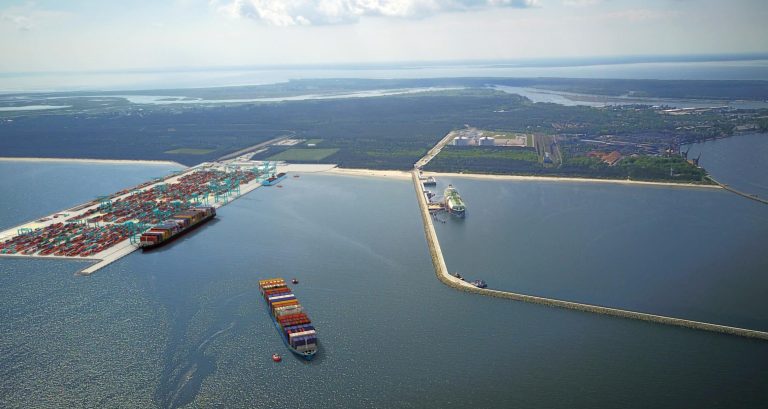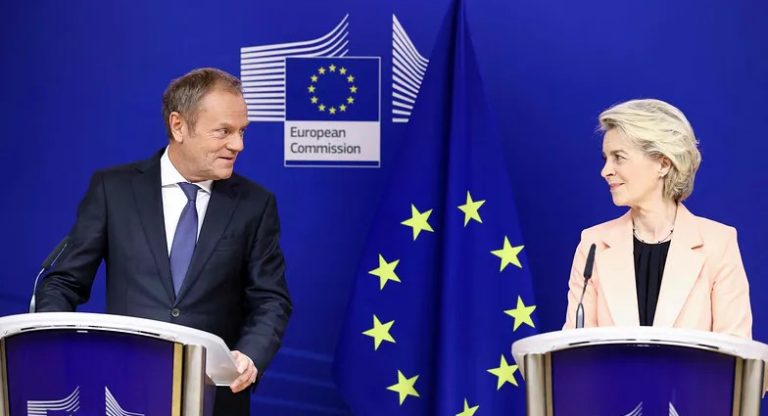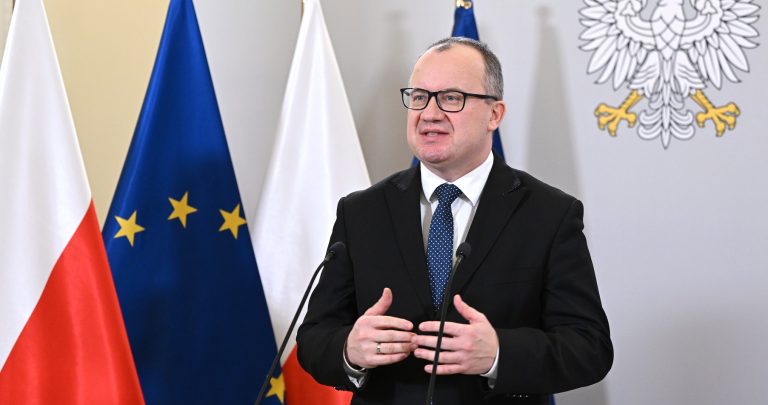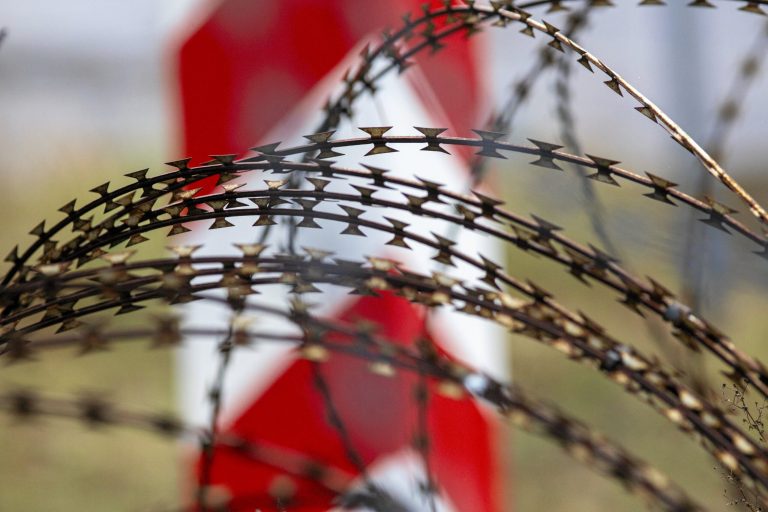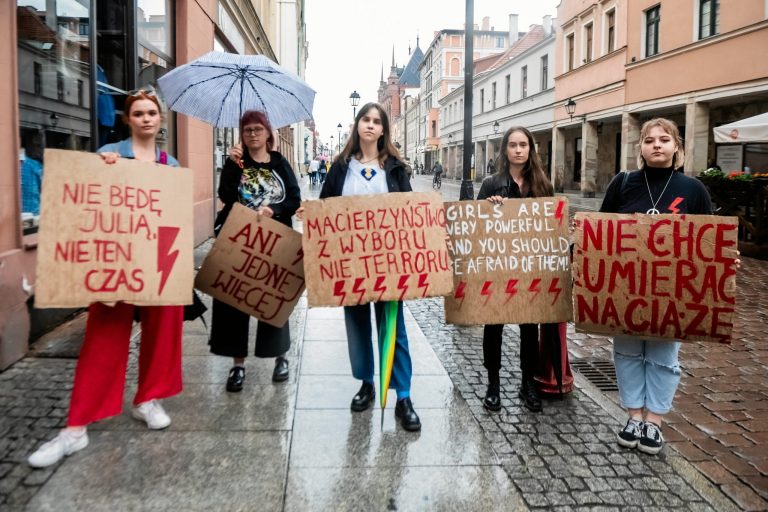“As an ex-refugee I sympathise with migrants” but Poland must defend border from “attack”, says foreign minister
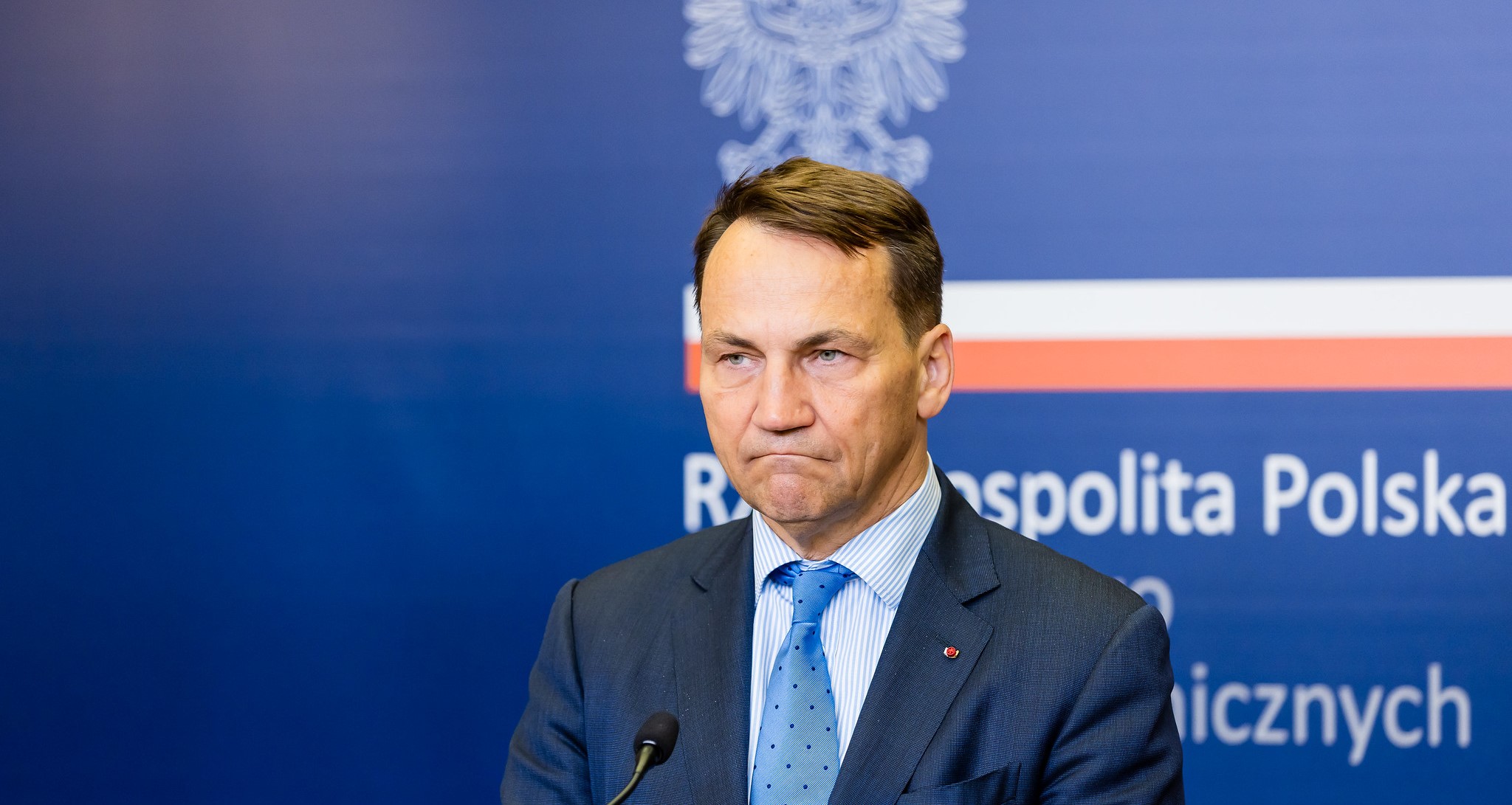
Amid a worsening migration crisis at Poland’s border with Belarus, the Polish foreign minister has announced plans for an information campaign in the migrants’ countries of origin – largely in the Middle East, Asia and Africa – to persuade them not to become “victims of Putin and Lukashenko”.
Radosław Sikorski, noting that he himself was once a refugee, said he felt sympathy for those being fooled into trying to cross into Poland. However, he noted that the crisis was being deliberately engineered by Russia and Belarus as part of a “hybrid attack” against Europe and that Poland must defend its borders.
Meanwhile, the interior minister, Tomasz Siemoniak, announced today that the number of attempted illegal crossings of the border is twice as high as a year ago and that there is growing aggression towards Polish border guards, a number of whom have been violently attacked.
The Polish government last week announced the reintroduction of an exclusion zone at the Belarus border in response to the recent surge in attempted crossings and attacks on Polish soldiers and border guards https://t.co/083TArWhxE
— Notes from Poland 🇵🇱 (@notesfrompoland) June 4, 2024
“We are undoubtedly at the centre of a hybrid operation [the aim of which is to show that] the EU’s external border is not controlled in order to create a political effect and strengthen the far right, which promises to destroy the EU from the inside,” said Sikorski, quoted by the Gazeta Wyborcza daily.
He was speaking at a campaign event for this week’s European elections. The Polish government has repeatedly claimed that recent Russian-linked operations against Poland – including the border crisis but also cyberattacks and acts of sabotage – are designed to destabilise the country ahead of that vote.
“I am a former refugee myself. I feel sympathy for people who are fleeing persecution or simply want a better life,” said Sikorski, who in the 1980s was granted political asylum in the UK during the period of communist martial law in Poland.
“[But] there is no human right to live wherever you want,” he continued. “If there were, there would be no need for visas, passports, border guards, etc. States and groups of states, such as the EU, have the right to control borders. Of course, we want this to happen in the most humane way possible.”
Poland carried out over 6,000 so-called „pushbacks” of migrants who crossed the border from Belarus between July 2023 and January 2024.
It is the first time the government has released data on the practice, which has been criticised by human rights groups https://t.co/DA5mCB7vAC
— Notes from Poland 🇵🇱 (@notesfrompoland) February 7, 2024
Asked by Gazeta Wyborcza about women and children who are camped out on the Belarusian side of the border hoping to cross into Poland, Sikorski responded that they are “victims of Lukashenko and Putin. This is a very good question for Lukashenko and Putin. They gave them visas”.
He added that 90% of people recently detained while trying to illegally cross the border have Russian visas.
“We are the victim of the largest hybrid attack against our country in several decades. This is one of the fronts of this war. There is arson, there are cyber attacks, there is spying. Unfortunately, as happens in war, sometimes there are innocent victims,” declared the foreign minister.
Sikorski revealed that, as part of efforts to diminish the crisis and help the migrants who have fallen victim to it, his ministry will launch a campaign in their countries of origin to dissuade them from coming to Europe.
“They are being misled into thinking that you can cross here however you want,” he said. “We will show that the border is protected; we hope this will convince these people not to endanger themselves and not put themselves at the disposal of smugglers and the KGB and GRU [Belarusian and Russian intelligence].”
The migration crisis at the border began in 2021, since when tens of thousands of migrants and asylum seekers have tried to cross with the encouragement and assistance of the Belarusian and Russian authorities.
Recent weeks have seen a rise in the number of attempted crossings, and also in aggression towards Polish officers at the border. Yesterday evening it was announced that a border guard had been hospitalised with serious injuries after being attacked by a group of migrants seeking to cross the border.
🗣️ „Przygotowana zostanie akcja informacyjna skierowana do krajów, z których pochodzą migranci próbujący nielegalnie przekroczyć granicę” – poinformował w poniedziałek szef MSZ @sikorskiradek.https://t.co/JCR3KnihrN
— tvp.info 🇵🇱 (@tvp_info) June 3, 2024
Prime Minister Donald Tusk announced last week that an exclusion zone along parts of the border – which was in place under the previous government from 2021 to 2022 – would be reintroduced.
While it was initially planned for the measures to go into force today, Siemoniak revealed yesterday that the relevant regulations would only be ready by the end of the week.
Speaking this morning to Polskie Radio, the interior minister confirmed that “aggression on the border with Belarus is growing” and that there are twice as many attempted crossings taking place as a year ago.
“These people at the border have Russian and Belarusian documents and have instructions from Minsk and Moscow to be aggressive,” he added. “Unfortunately the victims are [Polish] soldiers and [border guard] officers.”
Notes from Poland is run by a small editorial team and published by an independent, non-profit foundation that is funded through donations from our readers. We cannot do what we do without your support.
Main image credit: Ministry of Foreign Affairs/Flickr (under CC BY-NC 2.0)

Daniel Tilles is editor-in-chief of Notes from Poland. He has written on Polish affairs for a wide range of publications, including Foreign Policy, POLITICO Europe, EUobserver and Dziennik Gazeta Prawna.

